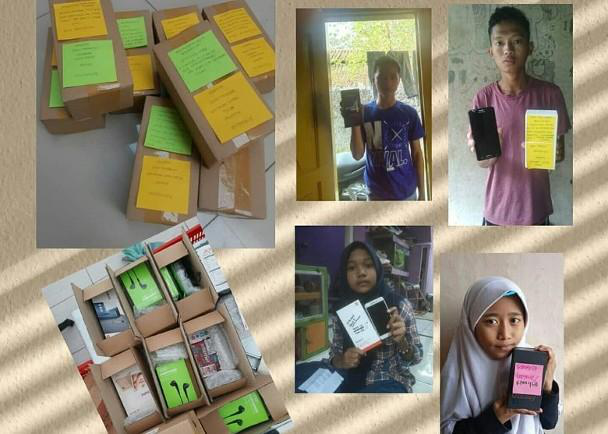
1.Why did the garbage collector go to Ghaliya’s house?
A To collect the garbage in the house.
B To get on the Internet for a phone.
C To help her with some housework.
D To ask for the second-hand mobile phone.
解析:选D。细节理解题。根据文章第一段倒数第二句The man asked if she had an old mobile phone that his children could use to get on the Internet.可知,该男子问加利雅是否有一部他的孩子可以用来上网的旧手机,故选D。
2.What can we learn about Ghina Ghaliya?
A She started a campaign to help out-of-school children.
B She is a kind journalist who is dedicated to the charity.
C She and her colleagues donated much money to poor children
D She provided online lessons for students with other journalists.
解析:选B。细节理解题。根据文章第三段第二句Shortly after the COVID-19 hit Jakarta, she and 11 other journalists organized a group to provide food and money for poor people.可知,在新冠肺炎疫情袭击雅加达后不久,加利雅和其他11名记者组织了一个团体,为贫困人口提供食物和金钱,致力于做慈善,故选B。
3.The underlined word “overwhelming” probably means _______.
A capable
B intense
C resistant
D beatable
解析:选B。词义猜测题。根据文章第四段第三句Many people donated second-hand phones, while others gave cash donations.可知,当记者们通过社交媒体宣布他们的活动时,很多人捐了二手手机,也有人捐了现金。由此推断公众对该活动反响“强烈”,故选B。
4.What’s Maghribi’s annoyance?
A He couldn’t hand in his homework online on time.
B His father didn’t allow him to use his mobile phone.
C He had to attend three video calls a week with his teachers.
D He was asked to use the phone to do online school every day.
解析:选A。推理判断题。根据文章最后一段第二句But the 11-year-old boy sometimes sent his homework late because he had to wait for his father to return from work in order to get back online ,which made him upset.可知,马格里比因要等爸爸下班才能用其手机上课,有时会迟交作业,这让他感到烦恼,故选A。